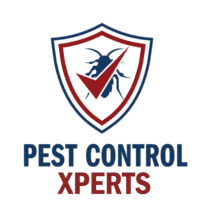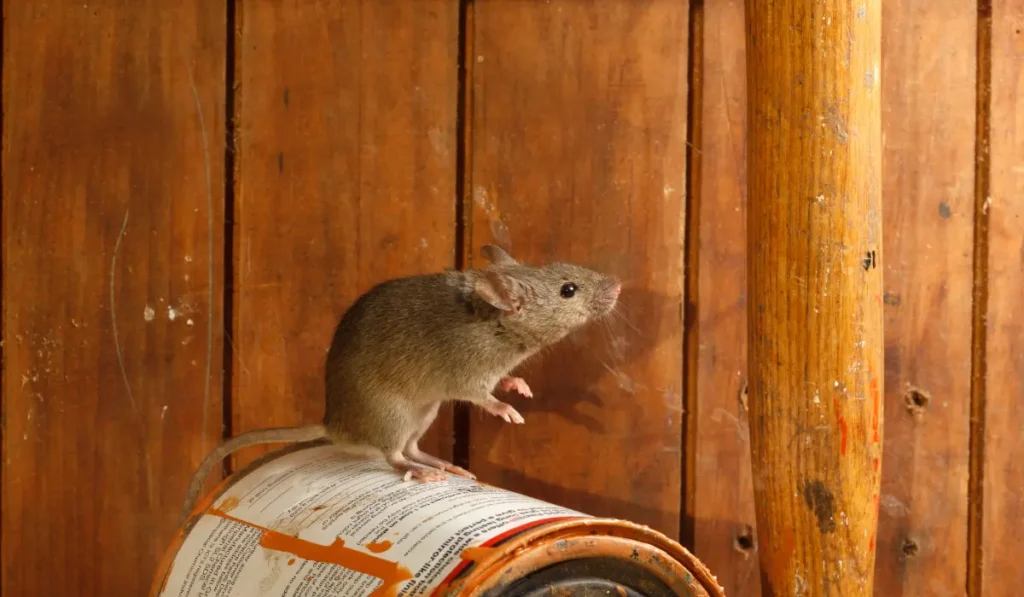Mouse Removal Services by Pest Control Xperts in Atwater
Serving homes, apartments, dormitories, hotels, and healthcare offices throughout Atwater, Livingston, Delhi, Winton, California, and Surrounding Areas
Professional Mice Control for Atwater, Delhi, Livingston, Winton, and Merced, California
The unsettling scurry across your floor, the tell-tale gnaw marks on food packaging, or the faint, musky odor in your pantry. These are not just minor annoyances, they are clear indicators of a deeper, hidden problem: a mice infestation. Many Atwater homeowners and business owners attempt to tackle these invaders with store-bought traps and sprays, only to find their efforts provide temporary relief, an illusion undone by the persistent, unseen colony thriving within their walls. Atwater Pest Control Xperts understands this frustration. We know that true mice removal goes beyond surface-level solutions; it demands a professional strategy that targets the problem at its source: the queen and the nest.
Why Mice Appear in Atwater and Surrounding Communities
Atwater, Delhi, Livingston, Winton, and Merced, California, with their unique blend of climate, geography, and architectural styles, present an ideal environment for mice to flourish. The region experiences hot, dry summers and mild, wet winters. This Mediterranean climate drives mice indoors seeking shelter and sustenance, especially during the colder, wetter months when outdoor food sources become scarce. Local geographical features, such as proximity to agricultural fields and the Merced River, provide ample food sources and moisture, creating attractive habitats for various mice species. Foundation cracks, unsealed entry points, and even issues with neighboring properties can provide easy access for these agile rodents into homes and businesses.
The architecture prevalent in our communities also plays a significant role in mice vulnerabilities. Older homes with their intricate crawl spaces, basements, and often less-than-perfect seals around pipes and wires offer numerous entry points. Dense commercial districts provide abundant food sources and hiding spots, while newer suburban developments, though seemingly more secure, can still have small gaps around utility lines or poorly sealed garages that mice can exploit. Mice can squeeze through openings as small as a ¼-inch, making even tiny cracks a potential gateway.
Types of Mice Commonly Found in California
California is home to several species of mice, each with distinct characteristics and behaviors. Understanding these differences is crucial for effective mice control and extermination in Atwater and the surrounding areas.
House Mouse (Mus musculus)
- Identification: Small rodents, typically 5 to 8 inches long including their tail, with grayish-brown fur and a lighter belly. They have relatively large ears and small, black eyes, and a scaly, mostly hairless tail.
- Behavior and Habits: Highly adaptable and commonly found in urban and suburban areas, house mice are skilled climbers and active year-round. They are primarily nocturnal but can be seen during the day, especially in large infestations. They build nests in secluded indoor areas like basements, attics, and wall voids using shredded paper or other fibrous materials. They are omnivorous, consuming and contaminating food intended for people, pets, and livestock. They can eat up to 20% of their body weight daily in about 200 small meals.
- Risks: House mice contaminate food and surfaces with droppings and urine, spreading diseases like salmonella and lymphocytic choriomeningitis (LCMV). Their urine is a major source of allergens, linked to asthma in children. They cause structural damage by gnawing on electrical wires, insulation, and wooden structures, posing fire hazards.
Deer Mouse (Peromyscus maniculatus)
- Identification: Larger than house mice, typically 3 to 4 inches in body length, with bicolored fur (light brown on top and white on the underside) and a distinct two-toned tail. They have larger eyes and ears compared to house mice.
- Behavior and Habits: Primarily outdoor dwellers found in rural and wooded areas, barns, and garages. They are nocturnal and build nests in woodpiles, sheds, barns, or sometimes attics and wall voids during colder months. Their diet includes seeds, fruits, nuts, and insects.
- Risks: Deer mice are known carriers of hantavirus, a serious respiratory disease that can be deadly to humans and transmitted through their droppings, urine, or saliva. They are less likely to cause extensive structural damage but may chew through wires or stored items while nesting.
California Mouse (Peromyscus californicus)
- Identification: Slightly larger than deer mice, with similar characteristics like a white belly and brownish-gray fur. They are typically 6 to 8 inches long, including their tail.
- Behavior and Habits: Primarily found in Southern California and Mexico, often in wooded or shrubby regions. They are nocturnal, omnivorous, and exhibit social, monogamous behavior, often living in small family groups. They build nests in underground burrows.
- Risks: Their presence in homes can lead to property damage and potential health risks, as they are known to be curious and enter homes in search of food, water, and shelter.
Western Harvest Mouse (Reithrodontomys megalotis)
- Identification: Small rodents with fine brown fur, lighter on the belly and feet, and long tails that are as long as their head and body combined. They have large, hairless ears.
- Behavior and Habits: Typically found in open fields, meadows, and grasslands, thriving in natural settings away from homes. They are primarily nocturnal and build spherical nests on the ground or in low vegetation. They eat seeds, plants, and insects. They may occasionally enter sheds, garages, or outbuildings for shelter, especially during colder months.
- Risks: Less likely to live indoors long-term than house mice, but can still cause damage or contamination if they get inside.
Problems Mice Create for Homes and Businesses
A mice infestation in your Atwater property is far more than an inconvenience, it’s a serious threat to your health, safety, and property value. These pervasive pests can cause a cascade of problems:
- Food Contamination: Mice constantly forage and leave droppings and urine wherever they travel, including in your pantry, kitchen counters, and food storage areas. This contaminates food and surfaces, posing significant health risks and potentially spreading diseases like Salmonella and Hantavirus.
- Property Damage: Mice have an insatiable need to gnaw to keep their incisors trimmed. They chew on electrical wires, insulation, wooden structures, pipes, and even gas lines. This can lead to costly repairs, fire hazards from exposed wiring, and compromised structural integrity. You may also find frass (wood dust or droppings) or sawdust, indicating their destructive activity.
- Daily Frustration and Stress: The constant awareness of mice activity, the scratching noises in walls at night, and the discovery of droppings can create significant stress and anxiety for property owners. This pervasive feeling of unease can disrupt daily life and impact peace of mind.
- Reputation Risk for Businesses: For businesses in Atwater, a mice infestation can severely damage your reputation, lead to health code violations, and result in lost revenue. Customers quickly lose trust in establishments that cannot maintain a pest-free environment.
Signs of an Escalating Mice Infestation
Early detection is key to effective mice control. If you notice any of these warning signs, it’s crucial to act quickly to prevent the infestation from escalating:
- Consistent Droppings: Small, dark, pellet-like droppings found near food sources, in cabinets, drawers, or along baseboards. Fresh droppings indicate active infestation.
- Gnaw Marks: Chewed wires, furniture, food packaging, or structural elements. These marks are often small and irregular.
- Scratching or Squeaking Noises: Sounds coming from walls, ceilings, or attics, especially at night, are a strong indicator of mice activity.
- Mice Trails and Runways: Greasy rub marks along baseboards and walls where mice frequently travel, or visible tracks in dusty areas.
- Nests: Discovering nests made of shredded paper, fabric, insulation, or other fibrous materials in secluded areas like attics, basements, or wall voids.
- Musky Odor: A distinct, stale, musky odor, particularly noticeable in enclosed spaces, can indicate a large or long-term infestation.
Why Professional Extermination is Essential for Mice Removal
Many property owners attempt to combat mice with DIY methods, setting out snap traps or scattering bait from the local hardware store. While these efforts might catch a few visible foragers, they are ultimately temporary illusions undone by the hidden colony. Here’s why professional mice control is the only true solution:
- Targeting the Entire Colony: DIY methods typically only address the visible mice, which are often just a small fraction of the entire population. The core of the problem, the queen and the nest, remains untouched, allowing the colony to continue to reproduce and thrive. Professional exterminators understand mice biology and behavior, enabling them to identify and eliminate the entire colony, not just the scouts.
- Preventing Budding: In some cases, ineffective DIY treatments can cause a colony to “bud” or split into multiple smaller colonies, spreading the infestation to new areas of your home or business, making the problem even more challenging to resolve. Professional treatments are designed to prevent this by systematically eliminating the entire population.
- Expert Identification and Assessment: Different mice species require different treatment approaches. Our experts can accurately identify the type of mice infesting your property and assess the severity of the infestation, allowing for a customized and effective treatment plan.
- Safe and Effective Solutions: Store-bought pesticides can be misused, posing risks to your family, pets, and the environment. Atwater Pest Control Xperts utilizes professional-grade products and application techniques that are effective against mice while prioritizing the safety of your property.
- Long-Term Prevention: Beyond immediate extermination, professional services include identifying and sealing entry points, offering exclusion techniques, and providing recommendations to prevent future infestations. This comprehensive approach ensures lasting peace of mind.
Our Mice Removal Method
At Atwater Pest Control Xperts, we follow a meticulous, multi-step process to ensure thorough and lasting mice removal from your Atwater property:
- Consultation & Inspection: Our process begins with a detailed consultation to understand your concerns and a comprehensive inspection of your property. We identify entry points, nesting sites, food sources, and the specific species of mice present.
- Customized Treatment Plan: Based on our findings, we develop a tailored treatment plan utilizing the most effective and appropriate methods for your unique situation. This may include strategic placement of baiting systems and other professional treatments.
- Colony Elimination: Our primary objective is the complete elimination of the mice colony, including the queen and the nest. We use targeted approaches to ensure all mice are eradicated from your property.
- Exclusion & Maintenance: We don’t just remove mice, we help keep them out. Our team will identify and seal potential entry points, offering exclusion techniques to fortify your property against future invasions. We also provide recommendations for ongoing maintenance.
- Monitoring & Follow-Up: We believe in long-term solutions. We monitor the effectiveness of our treatment and provide follow-up services to ensure your property remains mice-free.
Why Atwater Relies on Atwater Pest Control Xperts
When it comes to mice control in Atwater, you need a partner who understands the local challenges and delivers proven results. Atwater Pest Control Xperts is that partner. Our deep familiarity with the Atwater, Delhi, Livingston, Winton, and Merced areas, combined with our unwavering focus on complete colony destruction, sets us apart. We prioritize safe application methods, ensuring the well-being of your family and pets, and our commitment to follow-up means we stand by our service until your mice problem is fully resolved. We are dedicated to restoring your peace of mind and protecting your property from these destructive pests.
Related Topics
Understanding Mice Behavior in Different Seasons
How seasonal changes impact mice activity in Atwater.
Mice behavior in Atwater is heavily influenced by the changing seasons. During the hot, dry summers, mice may seek cooler, moister environments indoors. As temperatures drop and rainfall increases in the mild, wet winters, they actively seek warm, sheltered spaces and readily available food sources within homes and businesses. Understanding these seasonal patterns helps in proactive prevention and targeted treatment.
Preventing Mice Infestations in Commercial Properties
Specific strategies for businesses in Atwater to deter mice.
Commercial properties in Atwater, from restaurants to warehouses, face unique challenges in mice prevention. Strategies include rigorous sanitation practices, proper waste management, sealing all entry points, and regular inspections. Maintaining a clean and clutter-free environment is crucial to eliminate food sources and nesting sites that attract mice.
The Dangers of DIY Mice Control
Why common home remedies and store-bought products often fail.
Many homeowners turn to DIY mice control methods like snap traps, glue traps, and poison baits. While these may catch a few individual mice, they rarely address the root of the problem. Mice are prolific breeders, and a few caught foragers do not signify the elimination of a hidden colony. Furthermore, improper use of baits can pose risks to children and pets, and dead mice in inaccessible areas can create foul odors and attract other pests.
Mice Exclusion Techniques for Your Home
Effective methods to seal your Atwater home against mice.
Exclusion is a critical component of long-term mice control. This involves identifying and sealing all potential entry points into your home. Common areas include gaps around utility pipes, vents, foundation cracks, and poorly sealed doors and windows. Using durable materials like steel wool, hardware cloth, and caulk can create effective barriers against mice.
Health Risks Associated with Mice Infestations
Detailed information on diseases and allergens spread by mice.
Mice are known carriers of various pathogens that can cause serious diseases in humans, including Hantavirus, Salmonella, and Leptospirosis. These diseases can be transmitted through direct contact with mice, their urine, droppings, or saliva, or by inhaling airborne particles from contaminated areas. Additionally, mouse urine and dander are significant sources of allergens that can trigger respiratory issues and asthma attacks, particularly in sensitive individuals and children.
Contact Atwater Pest Control Xperts Today
If you’re tired of the endless battle against mice, if you’re ready to move beyond temporary solutions and achieve lasting peace of mind, it’s time to call the professionals. Atwater Pest Control Xperts is dedicated to providing effective, thorough mice control and extermination that eliminates the problem at its source. Don’t let a hidden colony continue to threaten your home or business. Contact us for an immediate consultation and take the first step towards a mice-free environment.
Atwater Pest Control Xperts proudly serves Atwater, Delhi, Livingston, Winton, and Merced, California, including zip codes: 95301, 95342 (Atwater); 95315 (Delhi); 95334 (Livingston); 95388 (Winton); 95340, 95341, 95342, 95343, 95344, 95348 (Merced).





